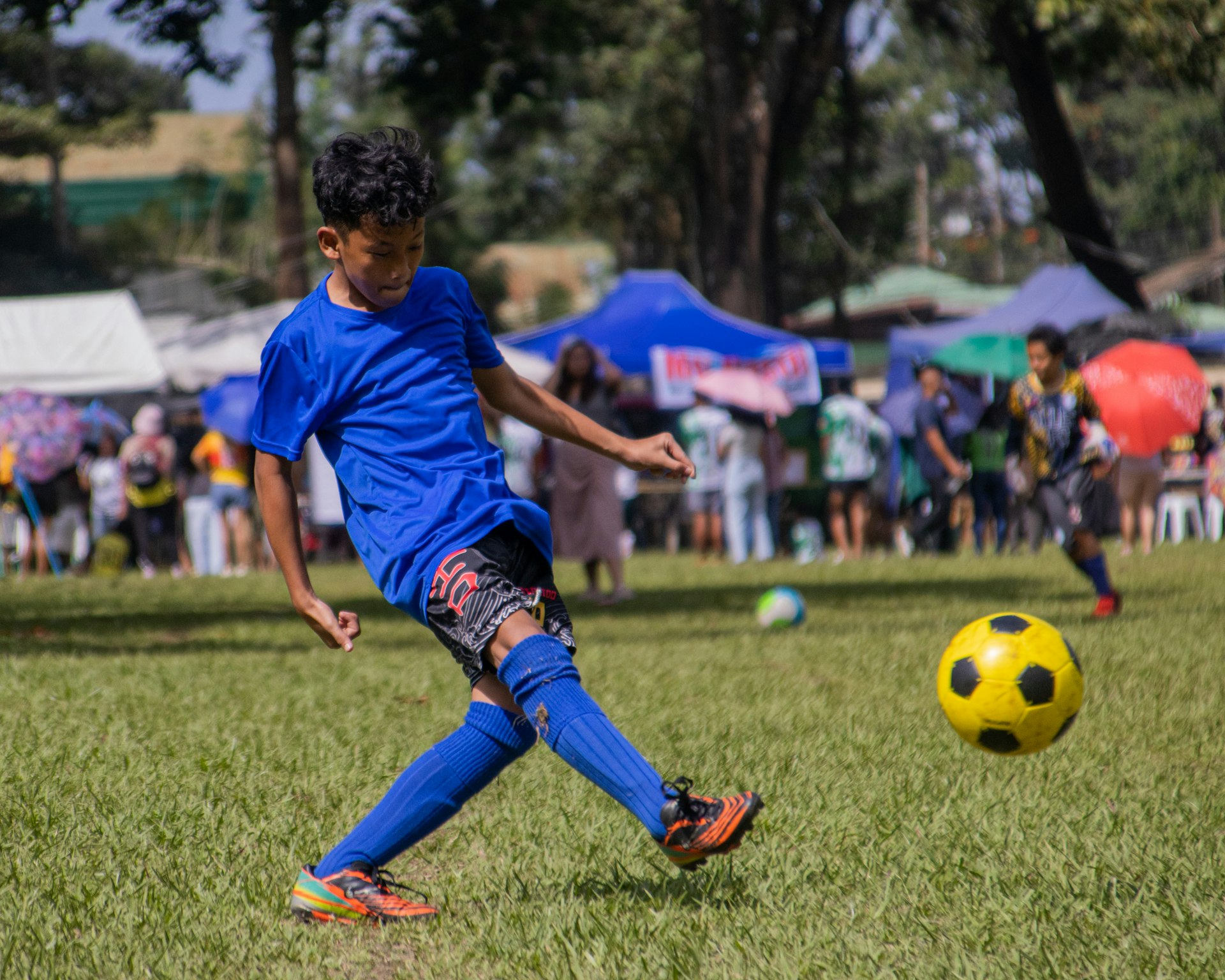Unlocking Athlete Success: The Essential Role of Resilience Training

Photo by Markus Spiske on Unsplash
Introduction: Why Resilience Training Matters
For athletes, the journey to excellence is rarely smooth. Setbacks, injuries, competitive pressure, and personal struggles are common hurdles. What separates consistently high performers from the rest is not just physical prowess, but mental resilience . Resilience training is a structured approach that empowers athletes to recover from adversity, adapt to challenges, and thrive under pressure. Today, the importance of resilience training is recognized at every level of sport, from youth to elite professionals, as a cornerstone of both performance and wellbeing [1] [3] .
What Is Resilience Training?
Resilience training encompasses a variety of mental skills and psychological strategies designed to help athletes manage stress, maintain focus, and recover from challenges. Techniques often include mindfulness, visualization, positive self-talk, and goal-setting. The process is about building mental toughness , which research shows improves performance, coping skills, and the ability to thrive in high-pressure situations [1] [2] .
Core Components of Resilience Training
According to experts in sports psychology, effective resilience training includes:
- Self-regulation and optimism: Learning to control emotions, maintain a positive attitude, and adapt thinking patterns.
- Mental conditioning: Practicing mental skills such as visualization and self-talk to build confidence and composure under stress.
- Mindfulness: Developing self-awareness through meditation, breathing exercises, and present-moment focus.
- Social support: Building strong relationships with coaches, teammates, and family to foster a sense of belonging and stability [3] .
Key Benefits of Resilience Training for Athletes
1. Enhanced Performance Under Pressure: Athletes who engage in resilience training show markedly improved performance in high-stakes situations. Techniques such as visualization and goal-setting help athletes maintain focus and positive mindset during competitions. Research indicates that mentally tough athletes are about 8% more likely to excel than less resilient peers [2] .
2. Better Stress Management and Mental Health: The dual demands of sports and academics, especially for student-athletes, can be overwhelming-about 25% report feeling stressed by their workload. Resilience training equips athletes with coping mechanisms, reducing anxiety, increasing self-esteem, and preventing depression, particularly during injury recovery or after competitive losses [3] [1] .
3. Faster Injury Recovery: Injuries are inevitable in sports, but resilience training can speed up recovery by helping athletes stay motivated and manage setbacks effectively. Athletes who develop resilience report better psychological wellbeing and are less likely to experience prolonged recovery times [1] .
4. Teamwork and Communication: Resilience fosters open communication, trust, and collaboration, all of which are vital for team sports. Coaches who promote resilience create a culture where athletes feel supported and are more likely to express concerns or challenges openly [4] .
5. Lifelong Skills: The life skills learned through resilience training-discipline, adaptability, emotional intelligence-extend far beyond sports, supporting success in academics, careers, and personal relationships [5] .
How to Implement Resilience Training
For Coaches and Teams:
Integrating resilience training into an athlete’s routine requires a systematic approach. Start by incorporating short mental skills sessions into regular practice-this can be as simple as guided mindfulness exercises or group discussions about overcoming setbacks. Regular dialogue and open communication are critical; coaches should create safe spaces for athletes to express concerns and emotions. Scheduling workshops with certified sports psychologists can provide tailored strategies for building resilience [4] .
For Individual Athletes:

Photo by Serghei Trofimov on Unsplash
Begin by identifying personal stressors and areas for growth. Journaling about challenging experiences, practicing daily mindfulness, and setting small, achievable goals can gradually build resilience. Athletes should seek feedback from coaches and mentors, and consider joining peer support groups for shared learning. For those facing significant obstacles, consulting a sports psychologist may be beneficial. To find a qualified professional, you can search the official directory of the Association for Applied Sport Psychology or ask your national or regional sports federation for recommendations.
Real-World Examples and Success Stories
Across all sports, examples abound of athletes who have transformed their careers through resilience training. For instance, after facing a season-ending injury, a collegiate basketball player used visualization techniques and regular mindfulness practice to maintain motivation and rejoin their team stronger than before [1] . Similarly, Olympic swimmers often employ self-talk and goal-setting to overcome intense pressure at major competitions, reporting enhanced focus and performance [2] .
Potential Challenges and Solutions
Challenge: Some athletes may be reluctant to engage in resilience training, viewing it as unnecessary or unrelated to physical skills. Solution: Coaches and administrators can counter this by sharing research, personalizing techniques, and demonstrating the positive impact on performance and wellbeing.
Challenge: Access to specialized resources, such as sports psychologists, may be limited. Solution: Many resilience-building techniques can be self-taught or facilitated by coaches using evidence-based guides. Athletes and coaches should search for resources from reputable organizations, such as the American Psychological Association’s Division 47 (Exercise and Sport Psychology), or request support from national governing bodies for sport.
Step-by-Step Guide to Starting Resilience Training
- Assess Needs: Reflect on recent setbacks, stressors, and performance challenges. Identify specific goals for mental growth.
- Seek Guidance: Reach out to your coach, athletic trainer, or school counselor about available resilience workshops or sports psychology resources.
- Begin Practice: Incorporate daily mindfulness (e.g., 5 minutes of breathing exercises), positive self-talk, and visualization routines into your training schedule.
- Monitor Progress: Keep a journal tracking your mindset, stress levels, and performance. Adjust strategies as needed, and seek feedback from trusted mentors.
- Expand Support: Build a network of peers, coaches, and mental health professionals who can provide encouragement and accountability.
Alternative Approaches
While structured resilience training programs are highly effective, some athletes benefit from alternative or supplementary methods, such as:
- Peer Support Groups: Sharing experiences and coping techniques with fellow athletes.
- Community-Based Programs: Many local sports clubs and universities offer group workshops on mental skills.
- Digital Resources: Online platforms provided by national sports organizations often host free or low-cost resilience resources and toolkits. To access these, search your sport’s official governing body website for mental health and resilience programs.
Accessing Resilience Training Resources
If you are interested in resilience training, there are several practical pathways to get started:
- Contact your coach or athletic department to inquire about workshops or seminars in your area.
- Search for “sports psychology resilience programs” with your sport or region as a keyword to find local, reputable providers.
- Ask your national or regional sports federation about mental skills training opportunities.
- For youth athletes, parents can consult school counselors or community recreation centers for guidance on available resources.
- If you are seeking individual support, look for licensed sports psychologists through the Association for Applied Sport Psychology’s official directory.
Remember, the most effective approach is consistent practice and open communication-resilience is a skill that grows over time with effort and support.
References
[1] ActiMenu (2024). Resilience Training for Young Athletes: Methods, Benefits & Success Stories.
[2] Game Plan Inc. (2023). Uncovering the Power of Resilience in Student-Athlete Triumphs.
[4] U.S. Figure Skating (2022). Helping Athletes Find Resilience in the Face of Adversity.
MORE FROM dealdetectivepro.com













